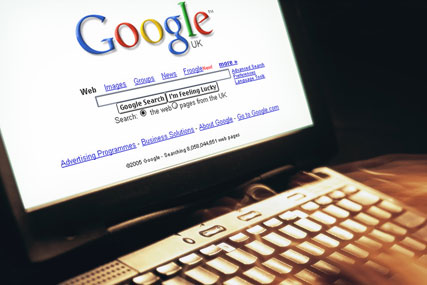
Among them, the World Federation of Advertisers said the change was "unhelpful" and "could raise costs for brand owners to protect and promote their brands online".
It also expressed "regret" that brand and trademark owners were not consulted before the change was made yesterday.
The WFA, which claims to represent 60 of the world's top 100 advertisers, was backed by UK advertiser body ISBA.
Referring to the reaction to Google's introduction of the same policy in the UK in 2008, ISBA said Google "risked repeating its communications gaffe".
Bob Wootton, ISBA's director of media and advertising, said: "The new trademark policy, which now applies across Europe is, at the least, unhelpful and could significantly raise the cost for brand owners to effectively protect and promote their brands online."
A Google spokeswoman responded to the claim that advertisers were not consulted by pointing out it announced the change in the summer and stating its position has been clear in publicity about the trademark debate.
Two other European associations also issued criticisms of the search giant, which is the dominant operator on the continent with a market share in the region of 85%.
The European Brands Association (also known as AIM), which represents 1,800 mainly consumer goods companies, "strongly criticised" the change. It also accused Google of failing to consult brand owners and labelled its new policy "premature".
It referred to the 23 March ruling of the European Court of Justice in a case against Google brought by three brand owners including LVMH. The ECJ ruled that Google's AdWords system does not violate trademark rights by allowing advertisers to bid for keywords corresponding to their competitors' brands.
It claimed the ruling "did not settle all issues" and the exact meaning of the court's finding "that an advertiser (who did not own the brand) would be liable for trademark infringement if their ad confused consumers as to the origin of the goods" had still to be established.
The Google spokeswoman said it had brought in the changes as a result of the European Court of Justice ruling and also because it believes the new policy benefits its users.
"We have a new policy which we think is compliant with the ECJ's ruling," she said. "But, it is and always has been up to each and every advertiser to choose their keywords and their ad text and to decide whether their actions are within the law."
The policy change means an advertiser can use a trademark to trigger an ad if it sells the relevant product It applies in the vast majority of European countries including the major markets of France, Germany and Spain.
Google is still allowing trademark owners to complain about the selection of their trademarks by a third party if they feel the ad text confuses users about the origin of the advertised goods and services. In these cases it will conduct a "limited investigation" and if it agrees it will remove the ad.
Tharien Pieterse, MediaCom EMEA head of search, said she thought the change might result in short-term but not long-term price inflation, based on her experience of the UK market after Google made the same change in 2008.
She said: "We monitored the travel, retail and finance sectors. Before the policy took effect we saw 15%-20% inflation in trademark terms, but this is very dependent on different verticals.
"Up to three weeks after the policy took effect we saw an additional 15% inflation and then up to 50% inflation on the cost for trademarked terms. [Then] we saw the price drop back to normal."
The European Cultural and Creative Industries Alliance, the fourth trade body, representing four major national luxury goods associations, expressed concern that the policy could lead to the infringement of trademarks.
It said it would like Google to create a best practice policy for advertisers incorporating penalties for non-adherence.

